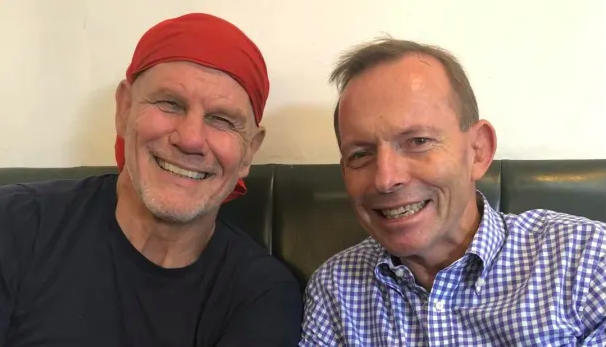Two days before the Christchurch massacre, Tim Dixon, former speechwriter and economic adviser to Kevin Rudd and Julia Gillard, delivered a public lecture at NSW Parliament House titled, “Crossing the Great Divide: Building bridges in an age of tribalism”.
In that speech, Dixon spoke of the toxic public discourse that is increasingly commonplace, intensifying and driving us apart. He offered a warning against the kind of contempt with which opponents typically view each other today, and suggested that “for many people, it’s just a short path from contempt to acting out violence”. Dixon couldn’t have known how prescient his words would prove to be. He says they have haunted him since.
Across the Western world we are entering dangerous waters, as public disdain for others becomes the norm rather than the exception. Authoritarian populists exploit these feelings of contempt that exist on all points of the political spectrum. We live in a time of rapid, disorienting change and disruption. Critical to our health and flourishing as a diverse community will be an ability to understand and to navigate profound differences. We can’t pretend we won’t have these differences. We urgently need to find ways to live well together with them.
When author and Herald columnist Peter FitzSimons recently tweeted a picture of himself at a café seated and smiling beside Tony Abbott – a former rugby teammate with whom he agrees on virtually nothing – the social media response shocked even someone as battle-hardened in the rough and tumble of the public arena as FitzSimons. The vitriol he received for this simple gesture was mostly unprintable and he found it perplexing. FitzSimons had put the photo up as an acknowledgement that people who see the world very differently do not have to be mortal enemies. Others clearly didn’t think so. These are the times we are in.

At Easter time it’s worth recalling the way in which Jesus engaged with difference and social alienation. He, of course, mixed with all manner of people, and in each and every case, whether it was a Roman soldier, a despised and traitorous tax collector, a prostitute or a leper, he managed to see beyond labels to the person. He always saw the individual and the human need behind whatever front that person presented to the world – the angry tweet, the obnoxious and aggressive post, or the transparently curated social media profile. He saw who they truly were.
And astonishingly, the Easter story has Jesus willingly going to a brutal death, not just for the sake of one group, his tribe, but for everyone, even those who were mocking and torturing him and driving the nails into his flesh. “Father, forgive them, for they do not know what they are doing,” the gospel accounts record him saying, highlighting an extraordinary attitude towards genuine enemies.
By living and then dying this way, Jesus opens up a possibility of true community that transcends barriers of class, status, gender, nationality, and political difference. It’s a vision that has captured imaginations for 2000 years.
It is undoubtedly unnatural to try to love your enemies. Few of us are capable of such a thing and examples of it shine brightly.
At Easter, in services all over the world, barristers and taxi drivers, plumbers and anaesthetists, refugees and bankers and hippies will kneel at the altar to receive the bread and wine, shoulder to shoulder, asking once again for forgiveness for their own wrongdoing, their own inadequacies. The participation of each person in this ritual is entirely based on the claim that Jesus didn’t remain in the tomb but rose from it. The impossible made possible, opening up vistas of hope for the restoration of shattered relationships, the mending of broken hearts, joy in the face of life’s lost dreams and disappointments. And even the potential for friendship with those not from your tribe, with whom you would more naturally be in hostile and opposing camps.
It is undoubtedly unnatural to try to love your enemies. Few of us are capable of such a thing and examples of it shine brightly. When Martin Luther King Jnr’s house in Montgomery, Alabama was firebombed in 1956, with his wife and daughter inside, his supporters were enraged and gathered at the house to launch a vigilante mission. This was early in the campaign for civil rights, and King’s response, to send his people home urging them to live in the way of Jesus, and to “love their white brothers no matter what”, was typical of what he would become so well-known for. Ultimately, it was what he died for.
Such restraint and resolve looks superhuman. Perhaps supernatural. Either way, most people recognise it as good, and beautiful and true. It’s the kind of inspiration needed today, as we navigate our differences and engage across lines of growing division, discord and hatred.
Simon Smart is executive director of the Centre for Public Christianity.
This article first appeared in The Sydney Morning Herald.